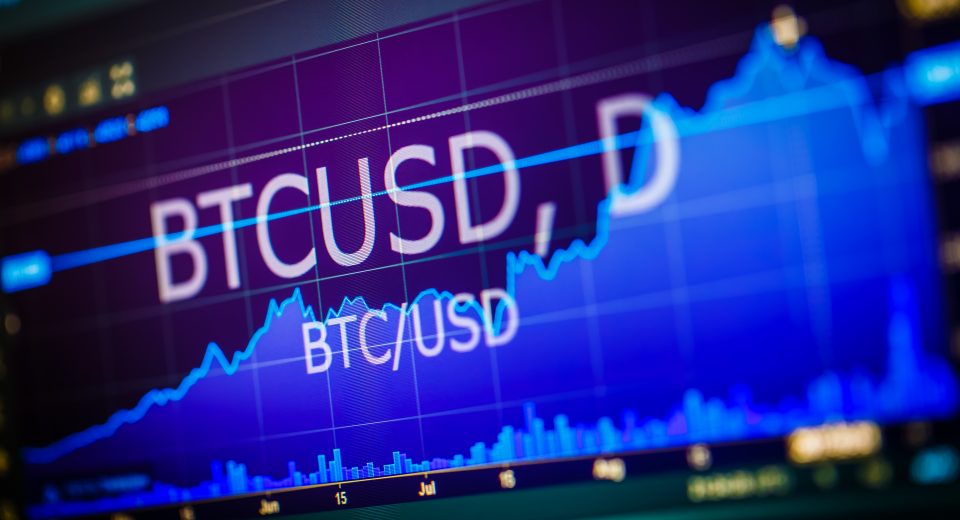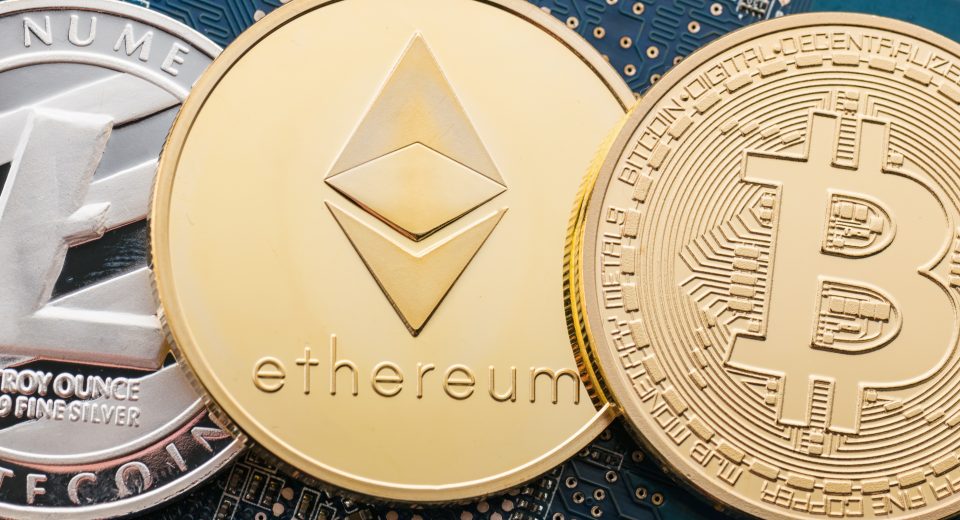Product in the Spotlight: Bitcoin Trading

What was once associated with nerds, libertarians and even drug dealers is now a trillion dollar currency. Bitcoin – the cryptocurrency which started the whole digital currency revolution – only recently gained prominence, with 2017 being a historic year for the cryptocurrency space.
With an exchange rate increase of over 1,300%, Bitcoin’s market cap increased past $230 billion, earning it the 19th place globally in terms of M1 money supply. Institutional investors started noticing it and Bitcoin even picked up steam in smaller countries.
The Blockchain Appeal
Believe it or not, the creator of Bitcoin remains anonymous to date. It is interesting to note that the man (or team) who laid out the original software in a 2008 whitepaper didn’t stick around to reap the benefits of their brainchild. Virtual currency before Bitcoin was only limited to online games. With blockchain, traditional ideas of finances changed forever.
Without a central authority or middleman charging hefty fees to keep track of transactions, costs could be lowered. Consensus was gained through a decentralised network, with blocks of data verified by ‘miners’. Enthusiasts saw this as a new way of conducting business transactions.
Today, central banks all over the world are speculating about using blockchain-based official currencies. It is being said that in 2018, the G7 central banks will start buying cryptocurrencies in order to increase their foreign reserves. Major companies like Amazon and Walmart have already started experimenting with blockchain for business transactions.
Bitcoin has remained the most predictable venue for investors to bank on the exponential growth of blockchain.
Factors that Influence Bitcoin Price
The value of Bitcoin has seen a phenomenal surge in the last couple of years. In 2017 alone, the price of 1 BTC started out at $1000 in January and reached a figure of $19,873 by December, before settling at $15,000 over the Christmas weekend. In 2018, we saw the price tumbling down as reports of South Korea (the third largest cryptocurrency market) placing strict regulatory measures emerged. Bitcoin started 2018 at $13,000. After a flurry of events, which included a hacking incident in Japan, prices more or less stabilised. From April onwards, the value has remained more or less consistent, reaching a figure of $8,352.8 on May 16, 2018.
So what influences the price of bitcoin?
Regulation Enforcement by Governments
Saying no to Bitcoin seems to increase its appeal. The continuous crackdown on cryptocurrency by various governments seems to have the opposite effect on their citizens who long to be a part of the digital revolution. Prices increase whenever official statements regarding the regulation of digital currency are released. In 2017, Japan’s recognition of cryptocurrency as a legal mode of payment was one of the prime factors behind the soaring prices of Bitcoin. It is a cause and effect situation, where people buy more crypto to circumvent their government’s cash controls, which in turn results in the said government putting regulations in place.
Phenomenal Growth in Developing Countries
Developing economies do not want to be left out of the crypto revolution. There was an almost 1,500% increase in Nigeria’s peer-to-peer trading, which could be as a result of the country’s currency weakening by 12.4% in 2017. Venezuela saw growth of nearly 1,000%. Reasons for this include high levels of inflation that resulted in a weaker local currency and tighter access to the US dollar. Bitcoin has a cap of 21 billion coins and inflation is a non-issue for it.
Media Influence
Prices are manipulated by negative and positive publicity via news channels. Any news about hacking, ICO bans and launches, celebrity endorsements gone wrong and more can bring down the price of Bitcoin. The increase in value has also been attributed to an increase in online activity, especially social media. Researchers have found strong correlations between Bitcoin price developments and internet searches/tweets related to bitcoin.
Technological Advancements
With advancements in technology around digital currency, a rise in buyer interest can be seen. For instance, the launch of various ICOs on innovative tech or integration of Bitcoin into the PayPal payment system led to a spike in Bitcoin price. In 2017, over $3.5 billion in funds were raised via ICOs! Academic interest also continues to rise, with people having greater understanding of what they are building. All this is good for the long-term prospects of the crypto industry.
Supply and Demand
Mining, which is essentially the solving of complex equations to gather bitcoin, is deliberately tough, so that the supply remains controlled. As the acceptance of Bitcoin surges, its demand will rise. Bitcoin is a finite currency, and that ensures that the demand will always surpass the supply. In this, it bears a close resemblance to gold, silver and crude oil, all of which are highly valuable due to their finite amount.
Huge Adoption Rate
Bitcoin is increasingly being adopted as a preferred mode of payment for merchants, money transfers and trading operations. More traders are trading it than ever before, which increases its value. It is a high-demand financial trading instrument, rather a global currency, with no association with central banks and governments.
Bitcoin Prices
Bitcoin Euro (to be linked to respective article)
Bitcoin Pound (to be linked to respective article)
Bitcoin US Dollar (to be linked to respective article)
Trading Bitcoin
The buy-and-hold strategy does work for a lot of traders. However, unlike day trading on stable markets, this strategy could give major jolts to traders, given the volatility of the crypto market. Moreover, although the currency is virtually impossible to duplicate, the system is not immune to theft and hacks. Wallets and exchanges are hacked on a regular basis. This is why bitcoin CFDs have emerged as the most feasible option.
CFD Trading of Bitcoin
Trading bitcoin CFDs is not much different from trading CFDs in any other currency pair. Some of the major advantages include:
- Derivative as the Asset Class: CFD stands for Contract for Difference, which is a derivative. You will never actually own or hold the asset, but rather trade on Bitcoin’s price movement. This minimises the chances of theft and fraud.
- Greater Flexibility: With CFDs, there will always be an opportunity for trading, regardless of whether the market is rising or falling. CFD traders look to take advantage of both rising and falling prices.
- Higher Execution Speeds: CFDs have extremely fast execution speeds. Unlike exchanges, your broker will have access to liquidity providers, offering guaranteed execution.
- Security and Trust: Exchanges are prone to theft and hacking. Brokers, on the other hand, are fully regulated and comply with the laws that safeguard trader interests.
- High Frequency Trading: Robust platforms like MT4 and MT5 allow scalping and high frequency trading, unlike exchanges, which can’t handle the load.
Trading Tips
Do Not Ignore Fundamental Analysis
Bitcoin is not regulated by any financial authority, which means no GDP releases, no inventory reports and basically no fundamental factors can influence its price. Traders need to stay aware of news pertaining to regulations of cryptocurrencies, however. In addition, economic indicators will still need to be assessed for the fiat currency you will be hedging against.
Sustainable Pace
CFD trading is done 24-hours a day, 5 days a week. Therefore, it’s important to adopt a pace that’s suitable for the long-term and work to a manageable schedule.
Technical Analysis
Bitcoin pricing modules are hugely speculative and do not follow traditional financial models. There is no central bank involved, so sound technical analysis becomes all the more important for making financial decisions.
Stop Losses
Even if you are trading CFDs, stop losses are a must. The Bitcoin market is volatile and the risk of losses is high.
Leverage
Too much leverage is reckless money management. Bitcoin derivatives lay extra emphasis on proper leveraging. Take multi-contract positions across different currencies to minimise risk.




